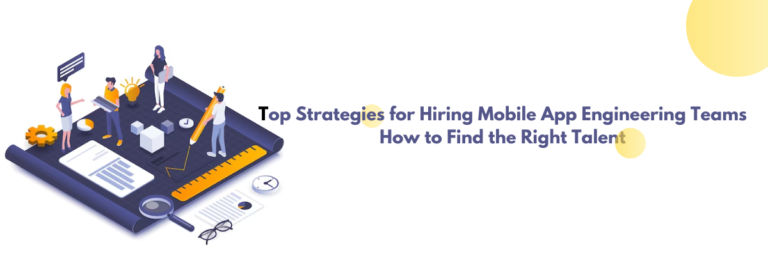How to Interview a JavaScript Developer and What to Look For?
Every business needs a great tech team, and one of the most essential roles within that team is the JavaScript developer. But how do you know if you are hiring the right person for the job? When interviewing potential JavaScript developers, there are several key skills and qualities to look out for to hire the best candidate.
What You Need to Know Before Interviewing a JavaScript Developer?
If you’re looking to bring a JavaScript developer onto your team, you’ll want to ensure they have the necessary skills and experience. This can be tricky, especially if you are unfamiliar with JavaScript. Fortunately, there are some steps you can take to ensure that the candidate is a good fit for the role. Let’s break it down below.
1. Research Potential Candidates Beforehand
Before you start interviewing potential candidates, it’s essential to do some research first. Look at their portfolios and check out their previous work experience.
This will give you an idea of their knowledge and experience in working with JavaScript. Doing this research beforehand will help narrow your search and save time during the interview process.
It also helps to read reviews about them from other employers or colleagues, which can give insight into how reliable and professional they are as a developer.
2. Ask the Right Questions
When interviewing candidates, you must ask questions revealing their expertise in JavaScript. Ask them about their experience developing applications using HTML, CSS, and JavaScript languages and more advanced topics such as AJAX calls, JSON manipulation, working with APIs, debugging code, etc.
Understanding how the candidate approaches problems will also indicate how comfortable they are in tackling challenges on the job. Additionally, asking about their development workflow and coding standards can give insight into how organized their work is and whether or not they adhere to best practices when writing code.
3. Be Open-Minded During The Interview Process
It’s important to remember that every person has a unique set of skills and experiences that can be beneficial for your team in different ways than expected, so don’t limit yourself by focusing solely on technical abilities during interviews — instead, emphasize finding people who have strong communication skills, problem-solving abilities, willingness to learn new things quickly, etc., since these qualities are just as important (if not more) when looking for developers who can work collaboratively with other members of your team and contribute positively towards achieving goals efficiently within deadlines given.
What Makes a Good JavaScript Developer?
A good JavaScript developer should have strong technical skills and be comfortable working with various programming languages. The candidate should also know HTML and CSS and have to experience with frameworks such as React, Angular, Node.js, and Express.js. In addition to these technical skills, it is essential to look for someone who can think critically and solve complex problems promptly. It’s also essential for a developer to be an effective communicator; they need to be able to work with others on a project to produce high-quality work on time.
Questions to Ask During the Interview 
When interviewing potential candidates, make sure that you ask questions that test their knowledge of coding languages and their problem-solving skills. A few examples include: ‘Can you explain object-oriented programming?’ or ‘Walk me through how you would debug an issue with a website’s code.’ Additionally, it is essential to ask questions that will give insight into how they work with others or within a team environment, such as ‘Describe your experience collaborating with other developers’ or ‘How do you handle tight deadlines?’. These questions will help you assess whether or not they have the soft skills required for your tech team.
Do’s and Don’ts of Interviewing a Javascript Developer
Do’s
- Choose the person you are looking for: Whether hiring a recent graduate or a seasoned JavaScript expert, make sure to scale the test and interview levels appropriately. It serves little purpose to waste both your and the candidate’s time by asking them to draw on years of experience they currently need to gain.
- Show enthusiasm for the candidate: Before someone shows up for an interview, spend some time figuring out who is coming. You can view some of a candidate’s code on GitHub, StackOverflow, and related web profiles. The chance to enquire in such detail about real-world initiatives and experience is too excellent to miss.
- Conduct tests in the real world: The more similar to real-world experience an interview is, the better. The simplest way to predict a candidate’s future success is to ask them to develop a tiny feature, review existing code for errors and improvements, or discuss some design decisions.
- Give technical homework: While taking up too much of a candidate’s time is unprofessional, a quick technical test before an interview can give you a lot of additional information to discuss and expand on. The correct applicant will be able to demonstrate their abilities outside the given 90 minutes.
Don’t
- A job interview that only uses programming jargon: Although it’s helpful to know that a candidate knows what SOLID, GRASP, and Agile entail, the concepts themselves don’t produce high-quality software.
- Multiple-choice tests can be performed online: In a complicated subject, writing good code involves design, technical knowledge, and engineering. Even while multiple-choice tests are simple to grade, they don’t evaluate any of the necessary skills and only serve to irritate qualified candidates.
- Give candidates a multi-day interview experience: An effective phone interview and in-person evaluation should provide you with enough information to proceed with the employment. Three, four, or five-stage interviews with candidates demonstrate a disdain for their time and your own.
Planning a Successful JavaScript Interview
It can be challenging to make the most of your time with a prospect. Interviewers frequently wish they had more time to assess candidates’ technical and communicative skills. Additionally, candidates frequently wish there had been more time to discuss issues and tasks in greater detail.
However, it’s frequently unrealistic to ask applicants to take another day off work and spend more time and money traveling to another stage.
An interview that has been carefully organized makes the most of every minute available. Without making either of you feel rushed, you should get a decent sense of their skill level and demeanor during this time. A typical 90-minute interview could be broken down as follows:
- Five to ten minutes to talk about prior employment and relevant experience
- Spend ten to fifteen minutes asking interview questions about JavaScript programming and its features.
- 40–50 minute coding exercise with a discussion of the answer
- 20 minutes to answer queries from the applicant and go over the job
In addition to directly evaluating their technical expertise, you should pay particular attention to their interpersonal and communication abilities. When combined with strong technical expertise and programming experience, “soft skills,” the kind you only get a hint of in your first meetings, are crucial to a team’s success.
Conclusion:
Hiring a great JavaScript developer requires taking the time to thoroughly vet each candidate’s qualifications and understanding what makes them tick. Asking probing questions about their technical abilities and soft skills is essential to find someone with both the technical know-how and interpersonal strengths needed for success on your team. By taking these steps when selecting your next JavaScript developer, you can ensure that you have hired someone who will not only bring value to your organization but also fit into its culture seamlessly.











